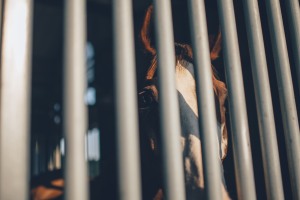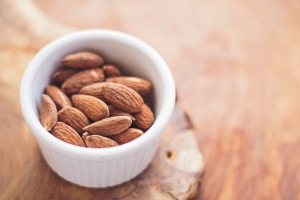I have spent the last several weeks researching sustainable meat. I, like many of you, am a practicing omnivore and as I have been learning all this great stuff about how to grow sustainable veggies, fruit, and other plants, I thought… what about meat? After all, it’s usually what I center my meals around and it’s often the largest food group on my plate, three times a day. I love it all; beef, pork, chicken, eggs, duck, frog, lamb, rabbit, turtle, you name it, I have eaten it. So, in the interest of our planet and education, I began exploring this food source.
What I thought was going to be a small, focused piece ended up being such a vast amount of knowledge that I have been overwhelmed and struggling as to where to begin. Some of what I learned and will now explain are very uncomfortable facts and, once learned, have a very sobering effect. With that being said, this post isn’t about animal cruelty or the terrible conditions that our “food” is kept in before slaughtered. I don’t expect for anyone to convert to veganism and change their behavior right away, that would be an unrealistic expectation of you or myself. This post is about meat sustainability and breaking down whether or not it’s really possible.
The most shocking facts I learned revolved around beef. To keep up with the world’s demand for beef, large quantities of land are utilized for cows. Approximately 2-20 acres is required per cow for them to be raised as grass fed, depending on when they are slaughtered, and if they are also fed grains and/or hay, less land is needed (about an acre per cow). Currently, one acre, or about a football field, is cleared every single second in the rainforest just to provide land for cattle agriculture.
According to The United Nations, animal agriculture is the number one enemy to a number of things including our rainforests, methane pollution, and water usage. They released a statement exclaiming that animal agriculture is the leading cause of environmental devastation and land use over anything else. The methane that cows produce is 86 times more destructive than all of the transportation from around the world combined. Let that sink in.
When you do the math of how much water a cow needs to reach slaughtering age and the 900 gallons of water required in creating one pound of cheese and 1,000 gallons of water to produce 1 gallon of milk, one hamburger is equal to 660 gallons of water.
Milk, arguably, isn’t designed for human consumption. Its super growth hormones are designed to turn a baby calf into a massive full grown cow within 18 months. Some people can’t even get clean water, yet the extreme population of our animal agriculture is sucking down our resources so we can have steak, milk and cheese. That’s 30% of our water resources total on earth.
Animal agriculture (not just cows) is also the leading cause of species extinction, dead zones in our ocean and habitat destruction. People and people owned animals now make up 98% of the world’s biomass and wild animals only 2%! The Amazon rainforest is predicted to be gone within 10 years if things continue as they are and with the populations of humans only growing, it’s doubtful that we will change. There have been activists that have spoken out in Brazil about the devastating damage that animal agriculture is causing the rainforest and the world. People such as Dorothy Stang and many like her have been murdered by cattle ranchers or hitmen.
After a few days of extreme depression over what I had learned about animal agriculture, I decided to look into fishing and see what I would discover there. I learned about major ocean dead zones directly caused from animal agriculture runoff and how they are expanding and beginning to kill our oceans. Major fishing companies use large nets in order to catch “sustainable” or legal commercial fish. The problem with that is with the fish they catch they are also catching what is referred to as bio-kill and is usually made up of sharks, whales and dolphin.
On average, 40-50 million sharks are killed as bio-kill each year with commercial fishing. Sharks are not the only animal species being majorly affected by our meat eating population and commercial animal agriculture. Wild horses are being rounded up so that the land can be used for livestock, currently 50,000 wild horses are now kept in captivity and wolves are killed on spot by helicopter snipers when a rancher calls and reports a sighting.

So the uncomfortable answer to the question I was seeking is that there is no longer such a thing as sustainable meat. Period.
So what’s the answer?
Firstly, awareness, education and conscious choices should be made. I have been digesting (pun intended) this information and I am prepared to start shifting my habits a little at a time. When I do decide to opt for the steak instead of the chicken or a delicious vegetarian meal, I don’t want to ignore the ugly facts as to what it took to produce my food. I want to make the choice knowing what it took so therefore I will stop taking it for granted.
Beef will now be my last choice and when I do eat a cheeseburger I’ll know it took more than 600 gallons of water to create and more than an acre of rainforest land. As I expressed earlier, I don’t expect sudden change. I am hoping for a subtle adjustment. I’ll be incorporating meatless mondays into my week along with cutting back my meat portions and forgoing them in my typical 3 times a day meals. You can also make a minor difference in what type of meat you choose to eat, free range etc. It’s even a better choice to look into boarding your own livestock on someone’s land and controlling the effect your diet has on the world. If you have land you may want to consider letting people board goats – a more sustainable choice for protein or cows that at the very least are not directly affecting our rainforests. There are also new and upcoming substitutional choices and alternatives to meat and dairy.

Eventually, meat could be one of the major reasons our ecosystems and food supply chains cease to function, so a shift in diet would be wise. However, if you choose not to change any of your current eating behavior, try to at the very least be conscious of the effect your choice has on the world. Small changes like choosing almond milk over dairy milk, eating more game type meats like duck and rabbit.
Animals were never meant to be kept the way there are now in animal agriculture and we are now seeing what this ignorant practice is doing to the planet. As it has been proven over and over again, the indigenous people had it right, they were hunters and gatherers and did little harm to the planet. Often times, when they had meat, it was eaten fresh as a treat and most of the time dried and eaten sparingly. Fish was often eaten more than other protein sources. There are ample opportunities for up and coming entrepreneurs in creating both food and environmental solutions to this major problem. Opportunities for meat supplements, imitation cheeses and milks and even protein sources. There has to be a better way and awareness is the first step.
Jessie Lane

Great post. I was really shocked recently after learning that the rainforests were being cut back for cow farming. 😦
I don’t think I could ever be fully vegan, but I have a tremendous amount of respect for them and hope to keep cutting back on my consumption over time. Good luck with the changes to your diet as well.
LikeLiked by 1 person
I am so glad you enjoyed the information, I did my best to present it as least depressing as I could, but that’s a lot of scary facts. Thank you for taking the time to comment. Xo
LikeLiked by 1 person
I am an omnivore too and I only eat the meat I have grown myself on my own fields – this way I know its provenance. I honestly think that if we all looked our dinner in the eye and said: Thank You – we would all eat less meat ( I do) and this would lead to a more natural distribution of our resources. The big problem is the distancing of the knowledge of meat as being an animal. You have written a great page here on a huge and terribly important subject. Lovely to have met you through the wwoofer programme! c
LikeLike